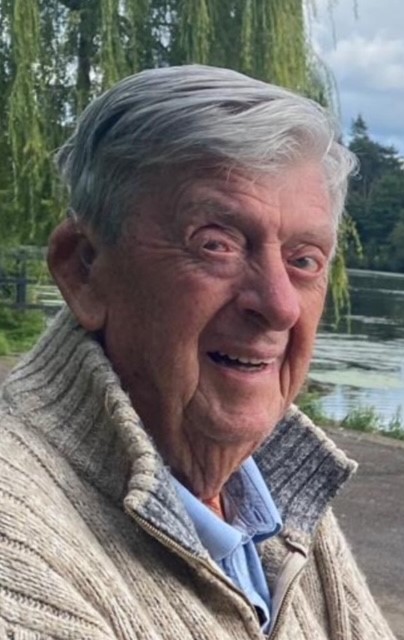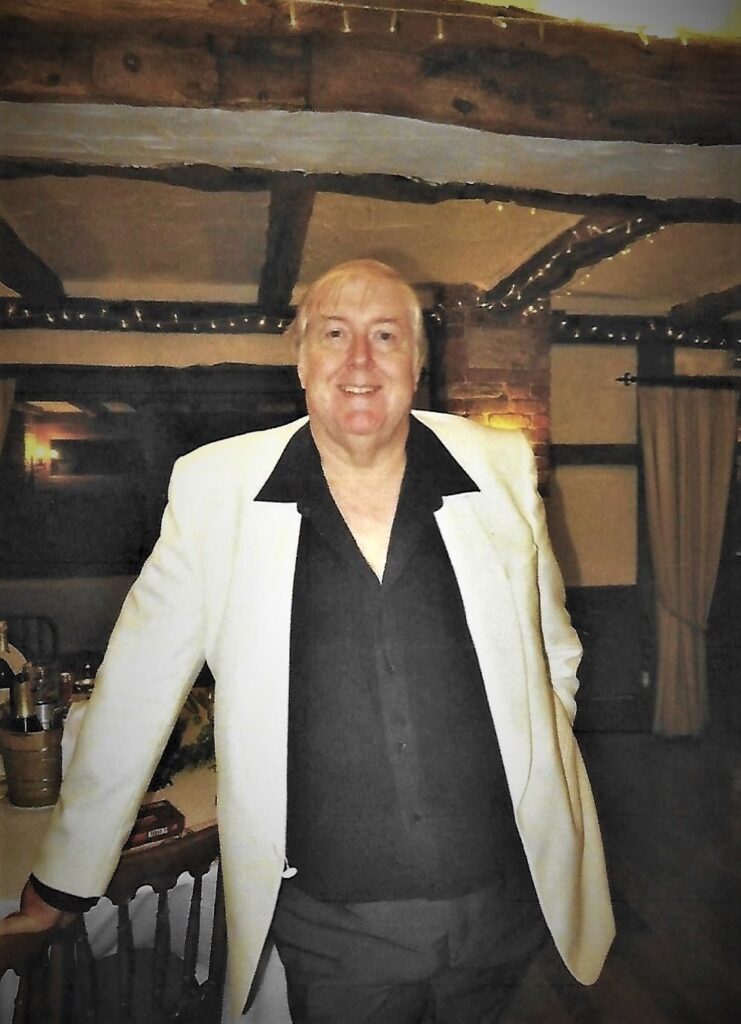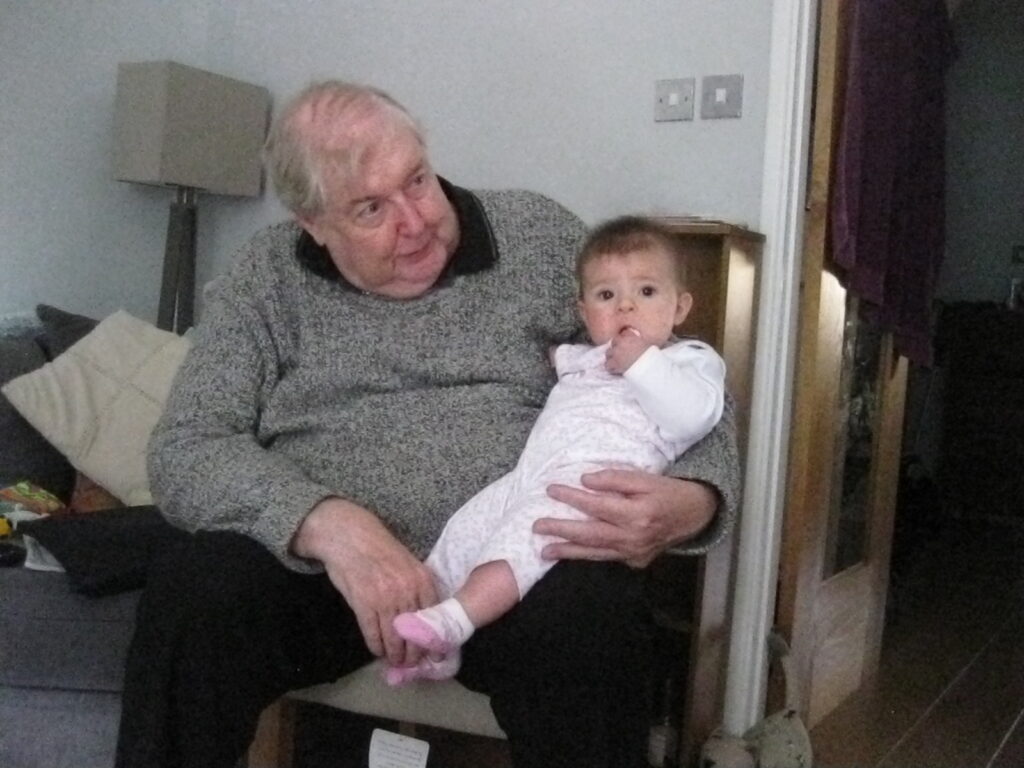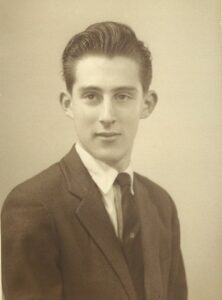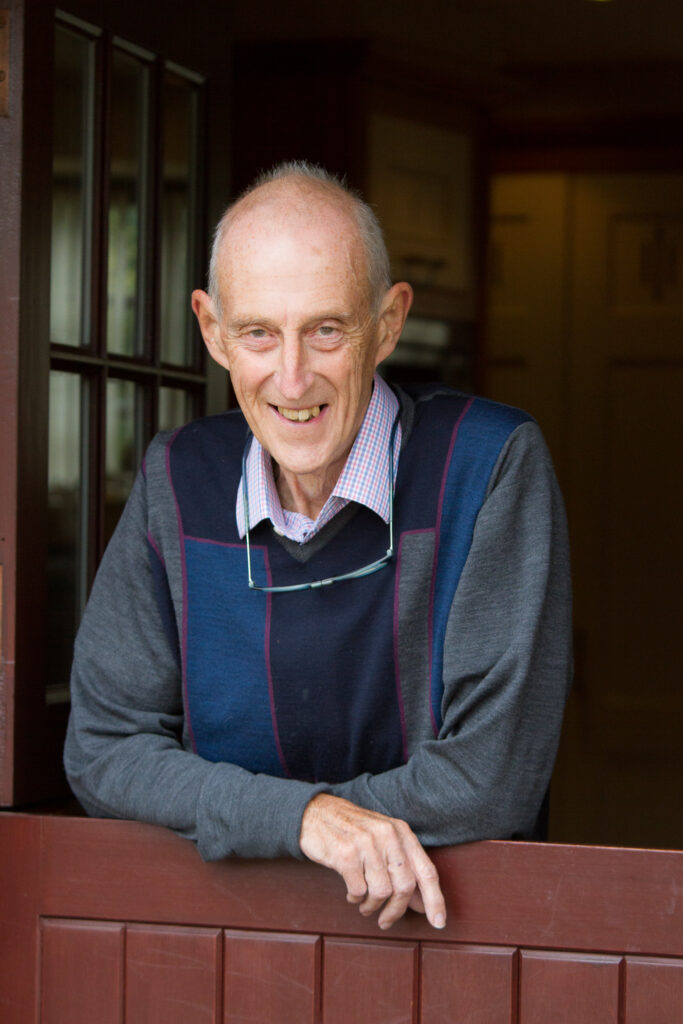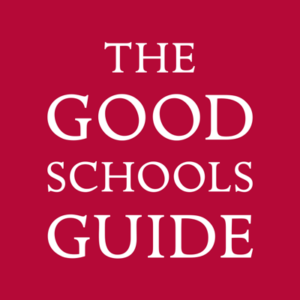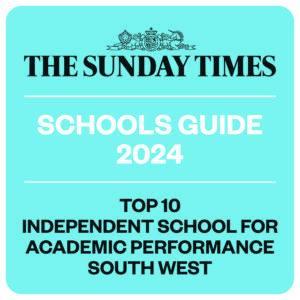Julian Smith (Crossing, 1955 -1962) 1944-2023
Julian entered 3A in 1955 but we first met in 4A in 1956. He was, somehow, the typical, seemingly average, schoolboy, neither brilliant nor dull, witty but not hilarious, better than averagely competent at rugger, but not really all round sporty, happily comfortable at school, but not a star, nor anxiously competing to be a star at any of those things. Just a very nice, kind, mischievous lad who fit in with the rest of the average ‘us’.
But, at the same time, Julian was very different from all the rest of us ‘oiks’ because he was, unquestionably and obviously a REAL musician. I say that, because, whilst all his close friends always knew this, it was, I think, not entirely clear to even most school staff that music, and music alone, was always going to be his life – with a single exception. This, luckily, was Ivan Cole, a great eccentric who taught music and, oddly, classics.
In the 1950’s and before, from what I know from such relatives as I had had at Exeter School, music was never a valued priority. We presented a competent annual Carol service, sometimes excellent, Britten’s Ceremony of Carols, quite early on for that work – and, of course, the annual Gilbert and Sullivan romp, when Ivan Cole usually tried to involve as many of the First XV as could keep a tune in the chorus – but permanent orchestra had we none, few individual recitals or concerts. Nearest was the CCF band of tin trumpets and drums.
Of course, as time went by, Julian became quite quickly, under Ivan’s nurturing, basically the only competent chapel organist during that decade. He studied with Lionel Dakers, the Cathedral organist. I remember Julian’s chef d’oeuvre in the sixth form: S. Karg-Elert’s voluntary on Nun danket alle Gott, which I guess he learnt for some examination, but which delighted, even when played on our underpowered chapel instrument. (I chose it for one of my son’s wedding here in Canada.)
Julian, in the ‘Crossing Club’, then an exclusive, 12-member dining and debating society, was a vigorous defender of socialism, unusual in the school politics current in the early 1960s, but certainly brave.
Julian went up to St Catherine’s College, Cambridge, in 1962 and very quickly developed a reputation for orchestral direction, with Raymond Leppard. He began a deep interest in opera and was a leading light with the Cambridge Purcell Society, conducting a notable performance of The Faerie Queene in the mid ’60’s. Richard Luckett, later Pepys Librarian at Magdalene, was closely associated with him in this, as was Alfred Deller.
in 1964, Julian and I, both at the dangerous age of 20, went on an extensive opera tour in his parents’ rattling old Austin 30 to Berlin, Leipzig and Dresden, all evidencing still the terrible damage of World War 2. Then on to Munich, Bayreuth and Venice. In Munich, we were both introduced to wonderful performances of Richard Strauss operas at the very newly, and beautifully restored, Bayerische Staatsoper and the Prinz-Regenten-Theater. Rosenkavalier became a favourite of both of us.
After graduating, Julian went on to begin a PhD on the Venetian composer Carlo Pallavicino, who worked in both Dresden and Venice in the late 17C. Julian did most of the original research on this in Venice, where I visited him in 1967 and ’68 after my return from India. He never actually finished his doctorate, but got married to his first wife, Kate Reed, a good friend of my own wife at Newnham College, Cambridge, and was appointed to a Lectureship at Nottingham University.
But Opera was, unquestionably, his true calling and he was soon seduced to Cardiff where he was, initially, appointed repetiteur, then Head of Music in the relatively newly formed Welsh National Opera (WNO). He continued with the WNO for much of his career with many notable successes. He particularly enjoyed conducting Verdi’s Don Carlos and was a specialist in bel canto. At the same time, in the mid 1980’s, he began with the BBC Wales “World singer of the year” competition. This involved his travelling to audition and select singers from 50 or so countries to be brought to Cardiff for this competition. Among these was the Bulgarian Mezzo-Soprano, Mirouslava Yordanova, who was to become his second wife.
He was visiting conductor to many world class orchestras, among these, San Francisco, Vancouver, Sydney, the English Chamber Orchestra and the London Sinfonietta. Also, during this time, he performed as an accompanist to, among others, Bryn Terfel and the popular Charlotte Church, for whom he made a number of successful arrangements.
It was in 2016 that he scored what I believe to have been his greatest achievement. Julian was commissioned by no less than La Scala to reconstruct Verdi’s original, 1904, score for Madama Butterfly. This opera had been panned after its first performance and was subsequently republished in a more popular format. Julian researched and restored the original score and was honoured in Milan at La Scala at the opening of the “Original score of the Original” performance. Amongst other pieces at the memorial concert for Julian in Cardiff on March 6th was his revision of the humming chorus entr’acte from Butterfly, conducted by Sir Richard Armstrong with the WNO and Chorus.
Latterly, Julian, whose skills as an accompanist were always strong, worked with his second wife, Mirouslava Yordanova, rediscovering, amongst others, song cycles including those of Pauline Viardot, a famous mid/latter 19th C mezzo-soprano – friend of pretty well everybody in the musical and literary world, from Alfred de Musset, Georges Sand, Turgenev, Berlioz, Gounod, even Brahms – but who is much overlooked as a composer of beautiful songs.
Julian achieved world-wide recognition and success. He was a pianist, organist, orchestral conductor, significant international musical scholar, chorus master, and accompanist, but, most of all, a thoroughly nice bloke and good friend over almost 70 years and I will greatly miss him.
Julian Smith died in Cardiff during the night of 1st February 2023. He leaves a daughter, Alex, a son, Harry, and 4 grandchildren.
James A. White (Daw, 1954-62)

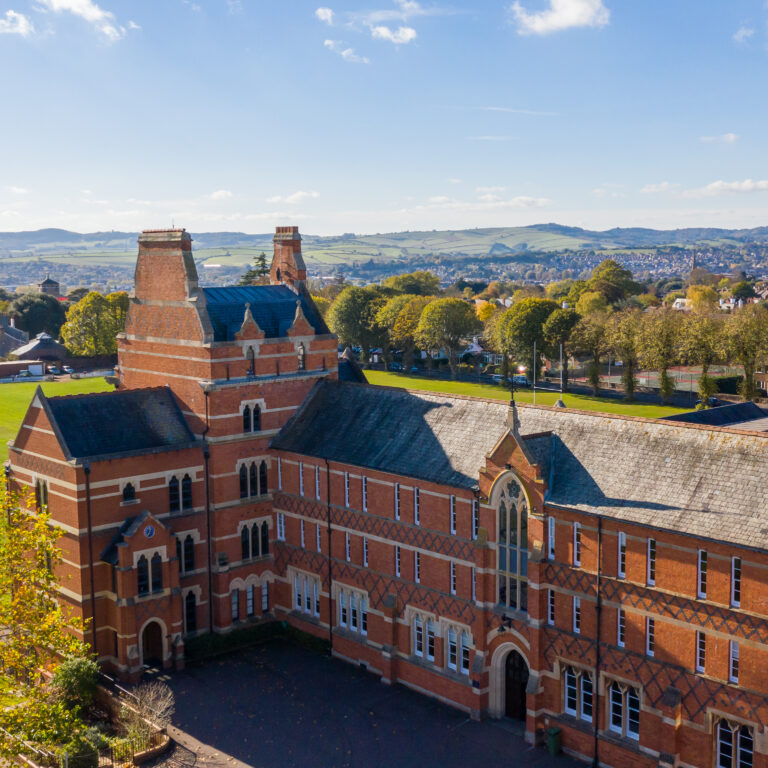
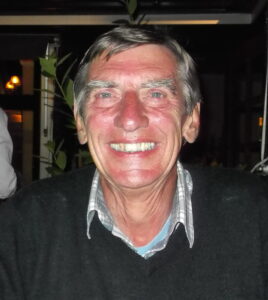 Christopher John King was born on 15th June 1943 in Bridgwater, Somerset, to Leslie and Betty King. Their house was bombed, so the family moved to Cullompton in Devon, where Chris learned to love country life, with a particular interest in birdwatching.
Christopher John King was born on 15th June 1943 in Bridgwater, Somerset, to Leslie and Betty King. Their house was bombed, so the family moved to Cullompton in Devon, where Chris learned to love country life, with a particular interest in birdwatching.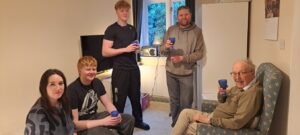
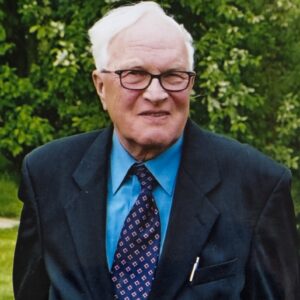
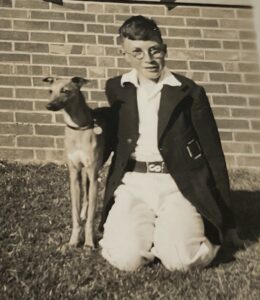
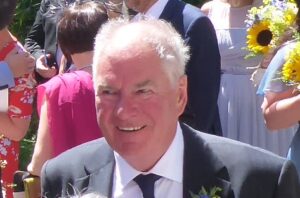
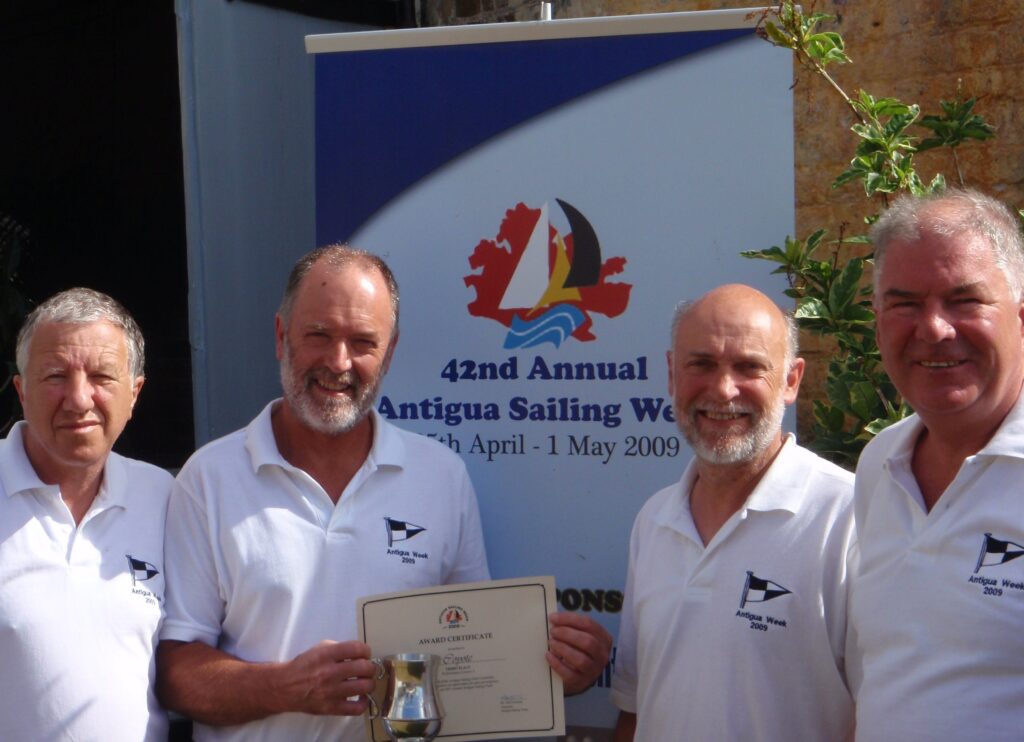
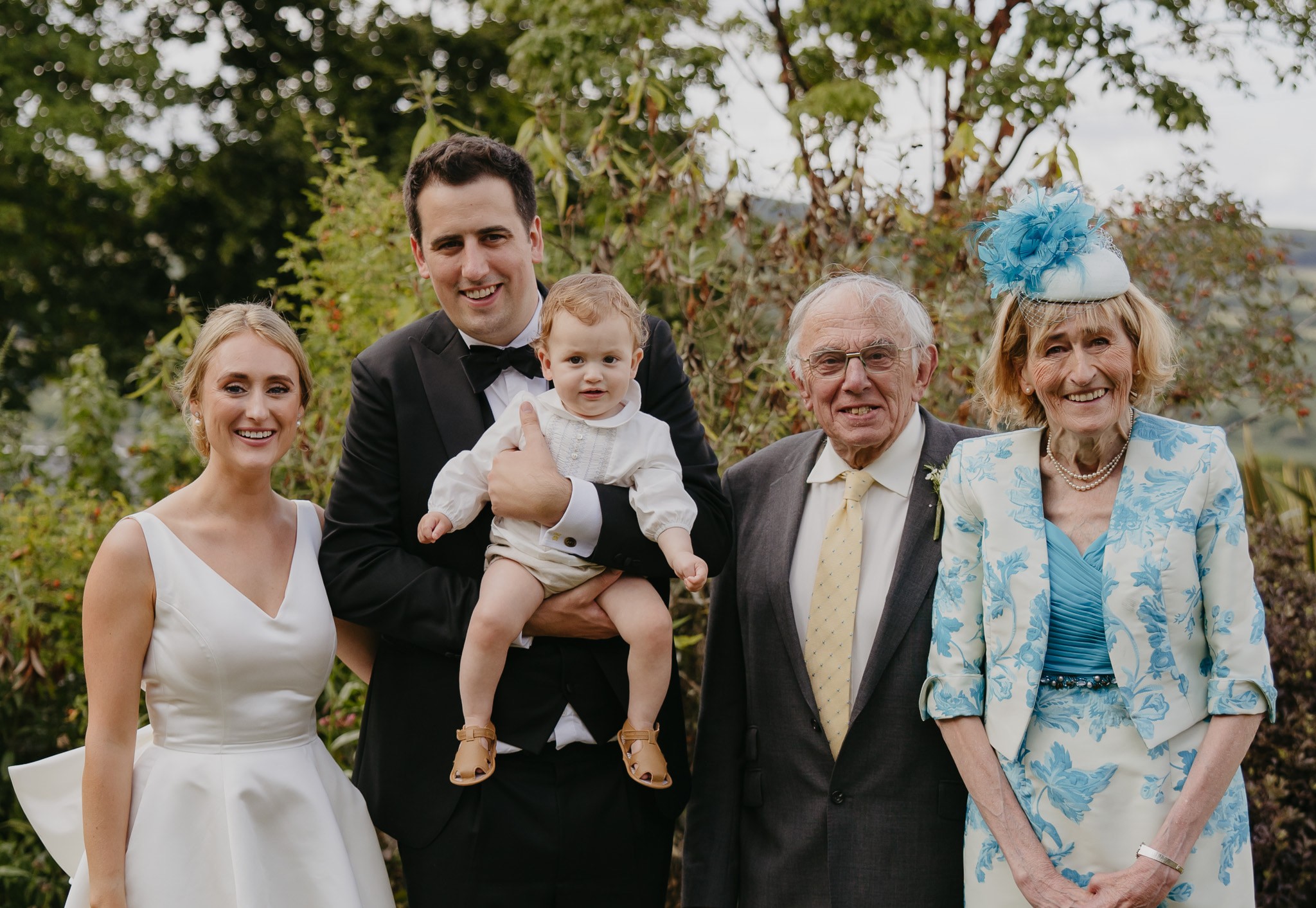 James “Alan” Tooley Chaffe (School House 1949-1955)
James “Alan” Tooley Chaffe (School House 1949-1955)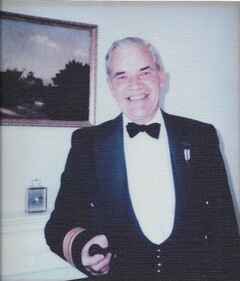
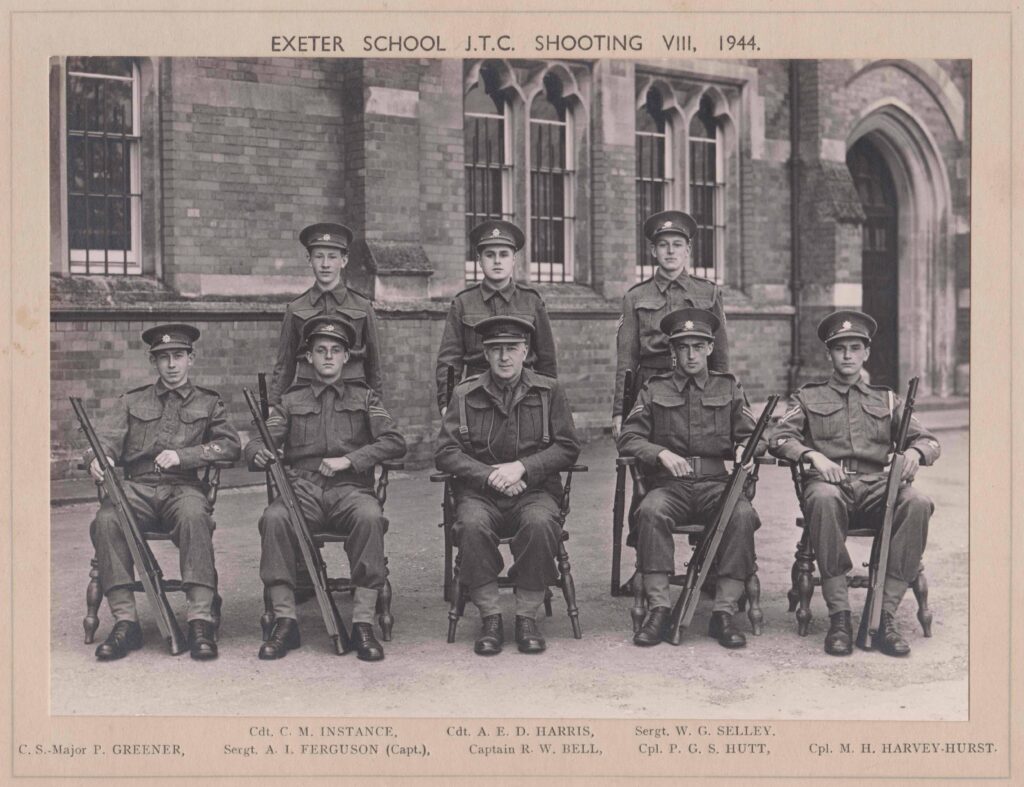
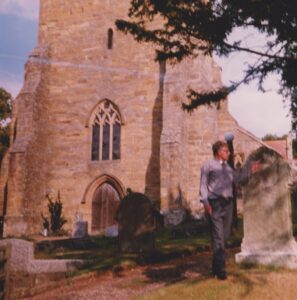
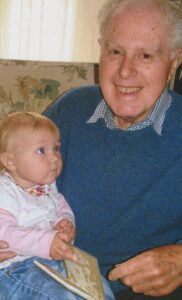 Moving to Broxbourne in Hertfordshire, Arthur went to work at Head Office as a founder member of the Research and Development group. Then came a series of posts, Banking Inspector, Pay Service, Machines Department, City Computer Centre, Clearing, and General Management. During these years he played a part in ushering in the era of computerisation, and the cashpoint. As Chairman of the Inter-Bank Committee, he pioneered the sort code which appears on cheque books and bank cards.
Moving to Broxbourne in Hertfordshire, Arthur went to work at Head Office as a founder member of the Research and Development group. Then came a series of posts, Banking Inspector, Pay Service, Machines Department, City Computer Centre, Clearing, and General Management. During these years he played a part in ushering in the era of computerisation, and the cashpoint. As Chairman of the Inter-Bank Committee, he pioneered the sort code which appears on cheque books and bank cards.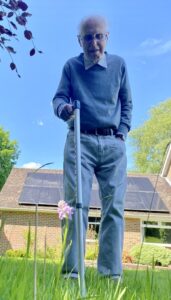
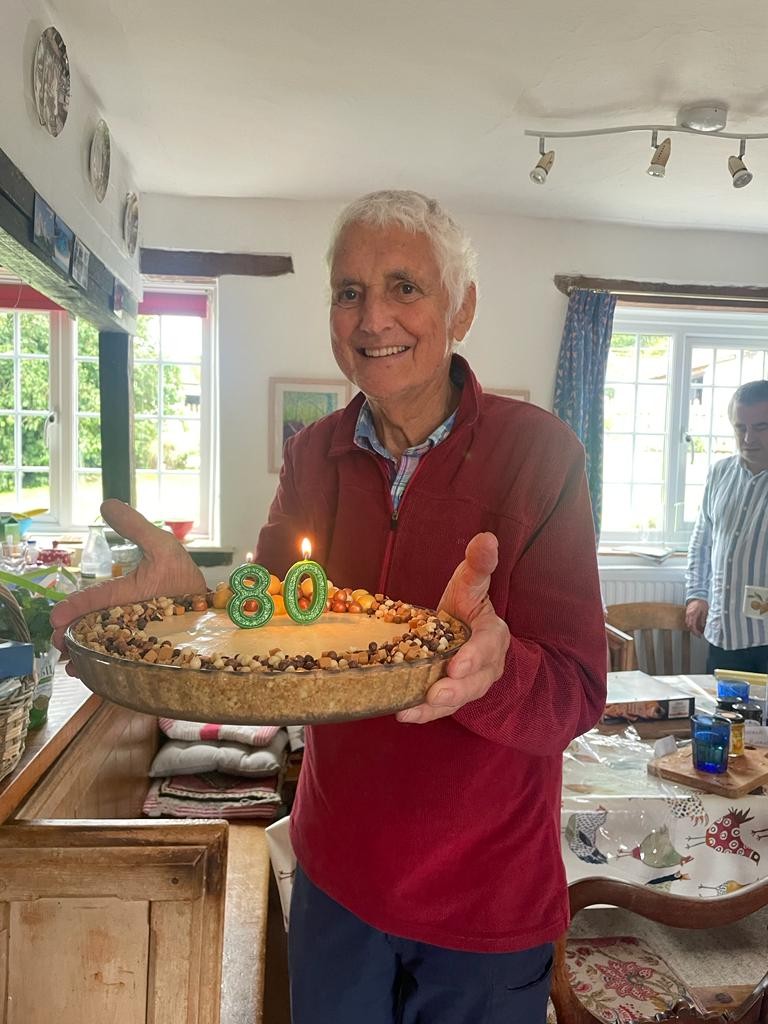 After graduating in German at Swansea University in 1966, Ian did his PGCE at Birmingham University, which is where he met his future wife to be, Pip (Madeleine), a French graduate from the University of Liverpool. They decided to go their separate ways the following year, as they both wanted to gain fluency in their second language, but when Ian was offered a post for a year in the Modern Languages Department at King Edward’s, Aston, where he had completed his teaching practice, he decided to defer his plan of a year in France. Pip meanwhile, then spent a wonderful year as an English Assistant in two schools in the town of Graz in SÉ Austria. The following year saw them together in Paris with Ian teaching English at the Berlitz School and Pip doing research for an MA at Exeter University and also picking up a teaching post by pure nepotism at one of the new University Centres that sprang up in Paris in the wake of the ’68 Student unrest.
After graduating in German at Swansea University in 1966, Ian did his PGCE at Birmingham University, which is where he met his future wife to be, Pip (Madeleine), a French graduate from the University of Liverpool. They decided to go their separate ways the following year, as they both wanted to gain fluency in their second language, but when Ian was offered a post for a year in the Modern Languages Department at King Edward’s, Aston, where he had completed his teaching practice, he decided to defer his plan of a year in France. Pip meanwhile, then spent a wonderful year as an English Assistant in two schools in the town of Graz in SÉ Austria. The following year saw them together in Paris with Ian teaching English at the Berlitz School and Pip doing research for an MA at Exeter University and also picking up a teaching post by pure nepotism at one of the new University Centres that sprang up in Paris in the wake of the ’68 Student unrest.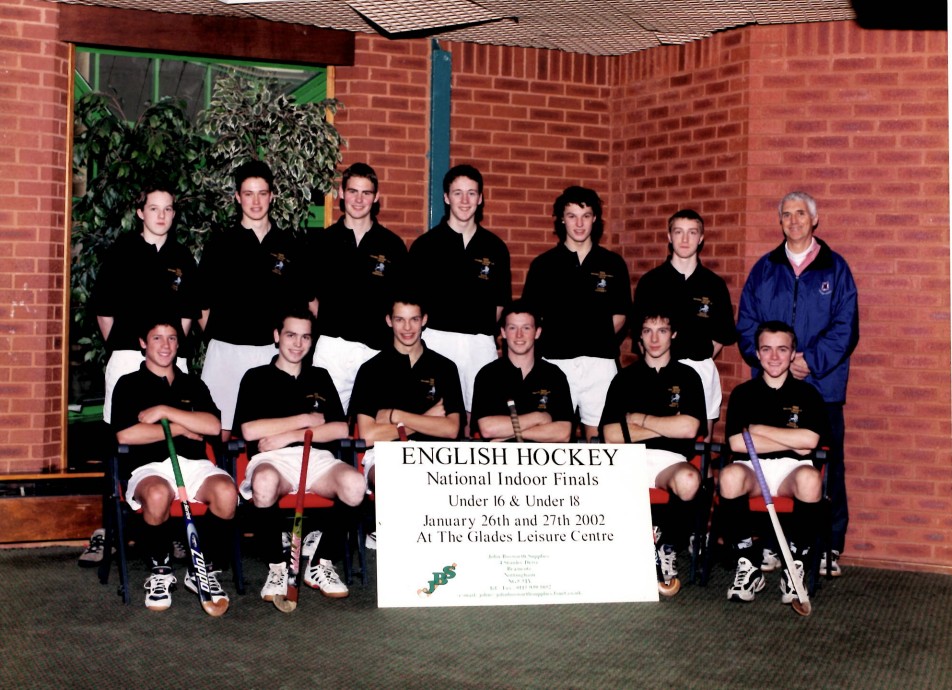
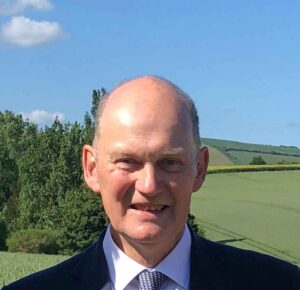
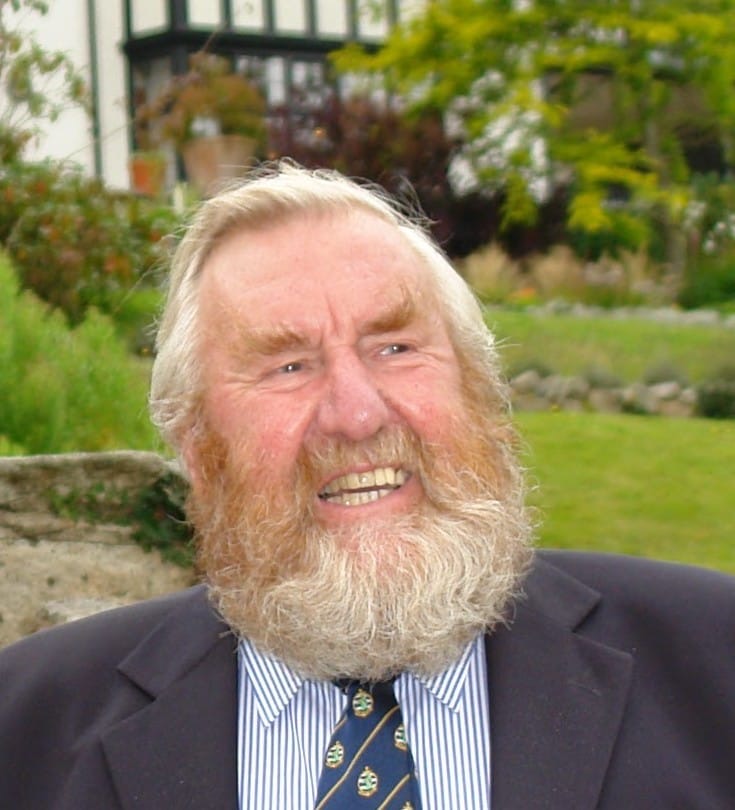 Edward Brassington Hobson (1944-1951)
Edward Brassington Hobson (1944-1951)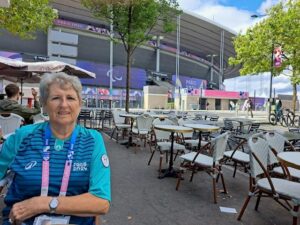 My wife, Lesley Wybrow, died very suddenly September 23 2024 in Poitiers, of a brain haemorrhage. She was a full-time nurse at the RD&E in the Paediatric unit and helped me form and run, throughout its entire life, the Exeter School St John Ambulance Cadet Division. She had completed helping at the Paris 2024 Olympics and Paralympics, giving a great deal of help there with Dave.
My wife, Lesley Wybrow, died very suddenly September 23 2024 in Poitiers, of a brain haemorrhage. She was a full-time nurse at the RD&E in the Paediatric unit and helped me form and run, throughout its entire life, the Exeter School St John Ambulance Cadet Division. She had completed helping at the Paris 2024 Olympics and Paralympics, giving a great deal of help there with Dave.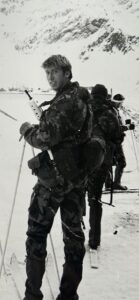
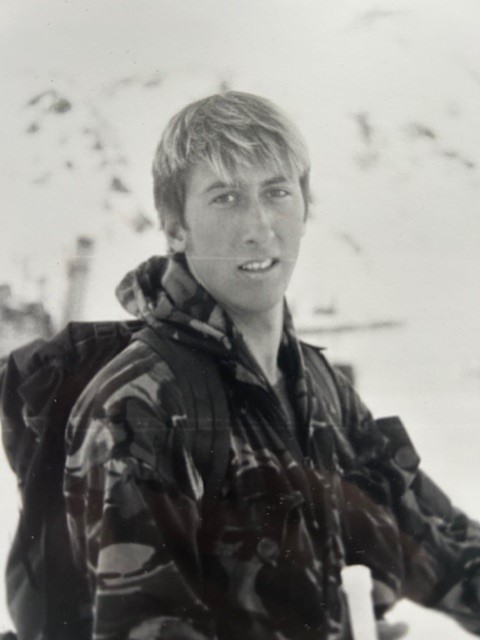
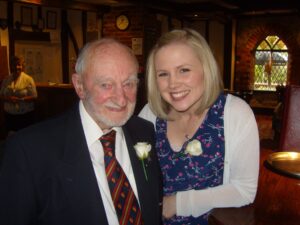 Anthony Orchard (1935-1940) – School House
Anthony Orchard (1935-1940) – School House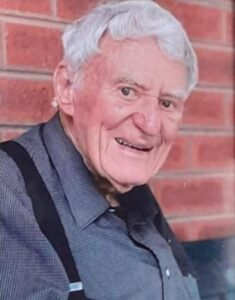
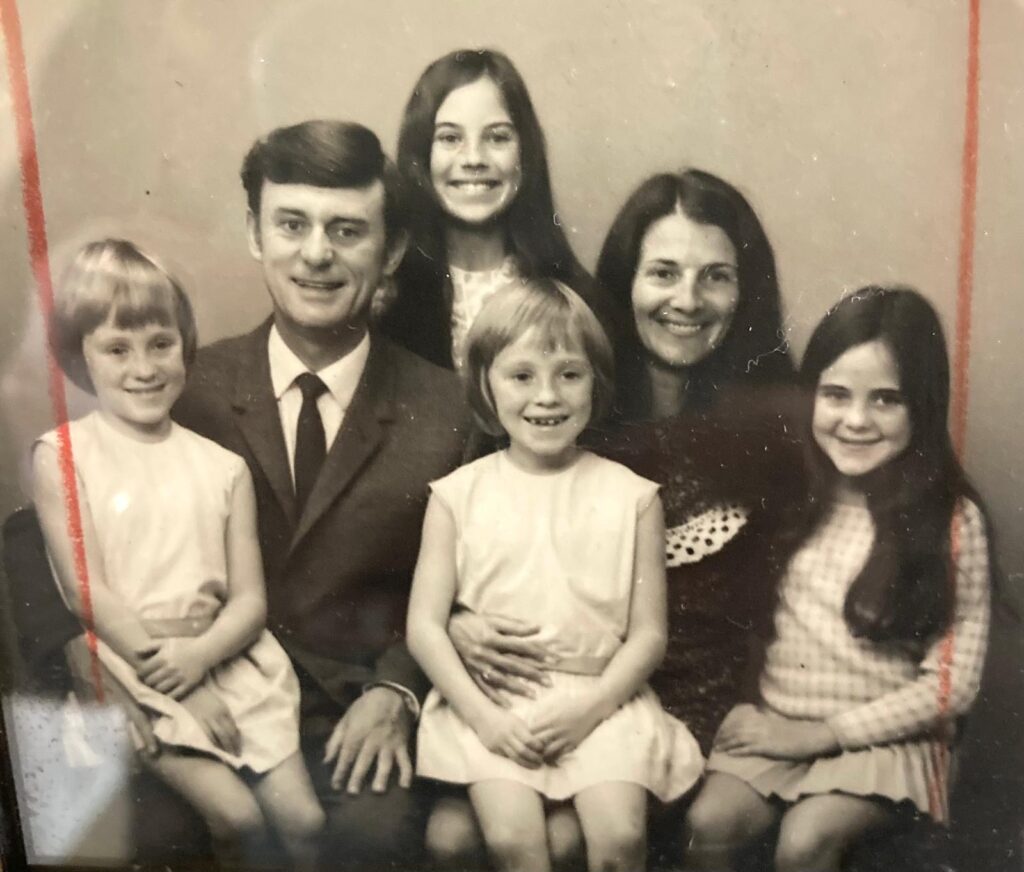
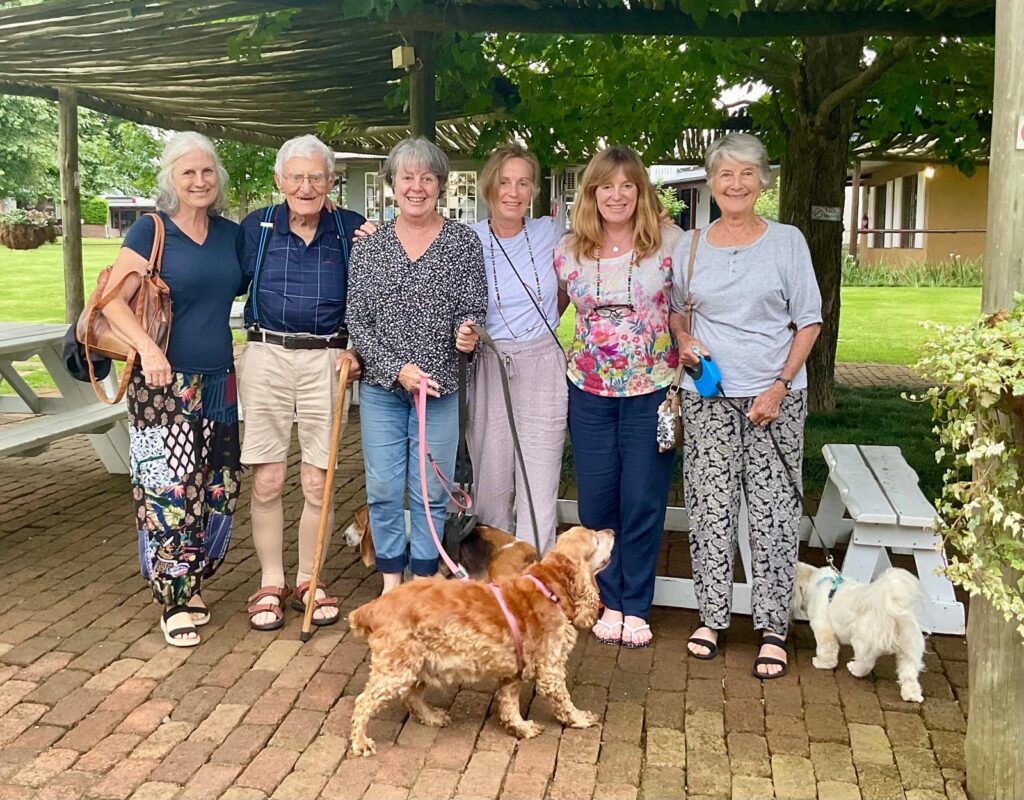
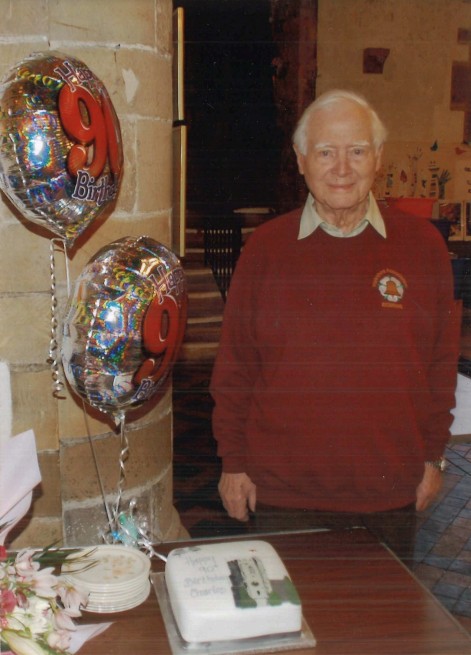 Charles Waterfall (1933-1943) – Drake
Charles Waterfall (1933-1943) – Drake
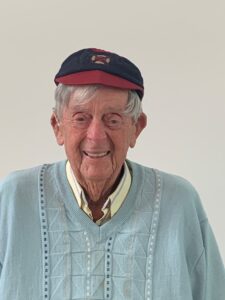 David Mahoney (1942-1946) – Buller
David Mahoney (1942-1946) – Buller